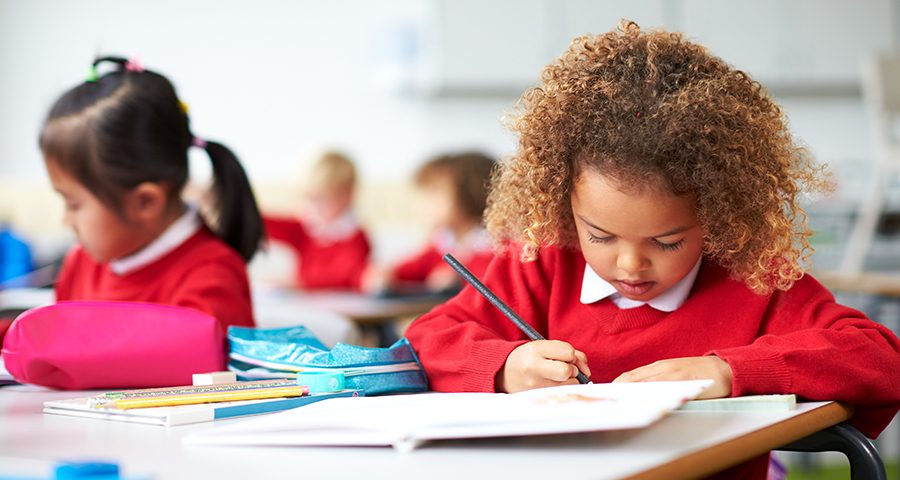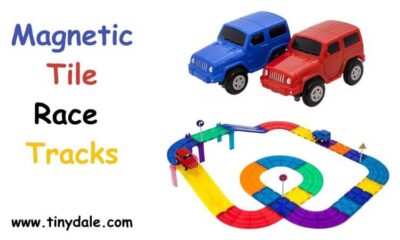Advice
Preparing for the Classroom: Q&A’s On School Readiness


Expert / 26 July, 2024 / My Baba
Welcome to an enlightening Q&A session with Izzy Judd and Professor Sam Wass, a child psychologist. We delve into the vital topic of school readiness, a concern shared by many parents.
Both Izzy and Professor Sam are supporting the new Start for Life ‘Little Moments Together’ campaign, which has also released a new film explaining how children’s brains develop during the early years, and the crucial role parents play through all the little moments they spend together with their child.
Whether you’re navigating the transition to school for the first time or seeking guidance for an older child, this discussion promises to empower you with the knowledge and confidence needed to support your child’s educational journey effectively.
Questions with Izzy Judd
How can parents support the development of writing and drawing skills before their children go to school?
Amazingly, in the first five years of life, the human brain develops faster than at any other time in our lives – the brain doubles in size in the first year and 90% of brain growth happens by the age of 5. So this is prime time to help support your child’s development in preparation to start school.
Involving kids in everyday tasks around the house is the best place to start. When it’s possible I ask my kids to help me make dinner and Lockie always loves playing with the water when I’m washing up.
As they get older, giving them things to hold, stir, pull, or twist will help begin developing skills for holding a pencil when they’re ready. Gentle encouragement and showing them how and giving them the chance to copy our actions really help.
What activities do you incorporate into daily life to enhance your children’s maths skills?
Early maths understanding is so important, it appears in many games you play with your kids. Counting is a big part of my work as a musician, so I like to play clapping games with them, where we count the beat of the music, or I ask them how many times a certain instrument will play.
Using numbers in real-life situations as well as helping explain things to them will also reinforce this learning, including counting rhymes or saying numbers in sequence, such as their fingers and toes.
How can parents help their children get used to following instructions and group activities before they go to school?
As my kids have grown up, I’ve noticed a change in their attention span… I’ve always talked to them about turning on their listening ears (which works sometimes!) and also to work out which activities they can focus on. Both listening and focus really depends on the child, all we can do is help to encourage them with these skills that are needed at school.
I also know from my own experience that babies are often easily distracted but giving them your full attention and playing simple games, like peek-a-boo, can help them focus on you and your behaviour.
As they get older, encouraging them to listen to instructions by playing interactive games, like Simon Says, can help them engage in group activities, and know when to listen to others!
How can parents help develop their child’s speech and language skills?
I recently worked with Start for Life to support their ‘Little Moments Together’ campaign, where I learnt just how important early childhood (from birth to age 5) is for child development.
Although small, every smile and giggle, every chat you have and every game you play together is firing up your child’s brain and building strong foundations for healthy brain development. Sharing these moments together throughout the day really helps your child learn to communicate.
Research has shown that hands-on experiences encourage learning – I love letting my kids help me make music with me, as we can play fun games with sounds and patterns, especially if they are repetitive or come with actions.
I read to my kids before they go to bed, and have fun chatting about what the characters are wearing and doing and we talk about what might happen next in the story.
Search Start for Life for tips and advice, and information on your local Family Hub.
Questions with Professor Sam Wass
How important is early education exposure, and what activities can parents incorporate into daily life to enhance their child’s readiness for school?
Research has shown that 90% of a child’s brain growth takes place before they turn 5, so it’s important to begin having simple interactions with them within daily routines as often as possible. Every moment and interaction is a chance to build connections in their brain, and in turn help them when they get to school.
Back-and-forth exchanges of expressions, gestures, and non-verbal “oohs” are great to get your baby’s brain working. Even when they’re tiny, just copying and mimicking your child’s sounds and faces makes a huge difference.
As they get older, it’s worth repeating the same conversations – hearing the same words and phrases repeated over and over helps a child’s brain to ‘practice’ processing the speech, and they get better at it over time.
Apart from education, what are the key skills and abilities that will benefit children at school? E.g. confidence, independence, and social skills
Letting our kids lead the conversation and giving them time to answer our questions instead of answering for them will allow them to build their confidence and ability to communicate well. Kids also naturally speak slower than us, especially to each other. Having short conversations with them allows their brain to learn how to successfully interact with others, as they can ‘practice’ processing the speech. Every chat, cuddle, and game you play are moments together that build their brain and help them develop secure and strong connections.
We can help our children to be independent before going to school by explaining new processes and answering all their repeating questions. Being curious about objects or experiences with them can help them feel supported and excited, and they’re more likely to want to continue the interaction, rather than following what we want them to do!
Also, being physically at the same level as them can help, whether that means you’re crouching down to their height or holding them up. It means that your child can see your face, but it also helps you to concentrate on what your child is saying to you, and to avoid getting distracted by your normal adult things – which we all know is too easy sometimes!
How can parents enhance their child’s social and emotional readiness for school, and what can be done to enhance as they get older?
Children’s brains are forming trillions of neural connections as soon as they’re born, with their brain doubling in size in the first year. However, their brains are also messy, unreliable, and slow – even a 15-month-old’s brain is still 10 times slower than an adult’s. It’s easy to be in a hurry, but it’s worth taking the time to sit, be slow, and be there together with your child.
With babies, doing simple expressions and holding them for much longer than you normally would gives your baby a chance to figure out what you’re really feeling, whilst toddlers and younger children will speak slowly compared to adults. Research suggests that it’s better to be patient and wait for them to answer rather than filling the silences, as they’ll learn more if they do it themselves!
What role does playtime and social interaction with peers play in school readiness, and how can parents facilitate positive social experiences for their children before they start school?
Play is crucial for driving early brain development. It’s worth not imposing any play style on your child, but rather watching what they’re doing, then observing closely and showing interest.
For a baby, just making a sound is great for their brain development – it helps the wiring patterns in their brain to develop, by teaching them about cause and effect. With toddlers, children of this age often like doing repeated things, such as stacking blocks in a tower. This early, repetitive play is still creative, and repetition helps build strong brain connections, so they’ll benefit from doing it with your support. Most older children love creative play – such as shared imaginative games. This is where the fun really starts!
You don’t need expensive toys or big experiences to help your children have positive experiences – every laugh and smile you share, as well as every game you play together, is a chance to build their brain.
Search Start for Life for tips and advice, and information on your local Family Hub.
Start for Life Little Moments Together campaign has released a new film explaining how children’s brains develop during the early years, and the crucial role parents play through all the little moments they spend together with their child.
Read Next
Mummy Hacks: Where To Shop The Best School Uniform + Advice On What To Buy
Your Very Handy Back To School Kit List
-

 Destination6 months ago
Destination6 months agoSingapore Airlines CEO set to join board of Air India, BA News, BA
-

 Breaking News8 months ago
Breaking News8 months agoCroatia to reintroduce compulsory military draft as regional tensions soar
-

 Tech News10 months ago
Tech News10 months agoBangladeshi police agents accused of selling citizens’ personal information on Telegram
-

 Breaking News8 months ago
Breaking News8 months agoBangladesh crisis: Refaat Ahmed sworn in as Bangladesh’s new chief justice
-

 Gaming8 months ago
Gaming8 months agoThe Criterion Collection announces November 2024 releases, Seven Samurai 4K and more
-

 Toys10 months ago
Toys10 months ago15 of the Best Trike & Tricycles Mums Recommend
-

 Toys8 months ago
Toys8 months ago15 Best Magnetic Tile Race Tracks for Kids!
-

 Guides & Tips8 months ago
Guides & Tips8 months agoHave Unlimited Korean Food at MANY Unlimited Topokki!























